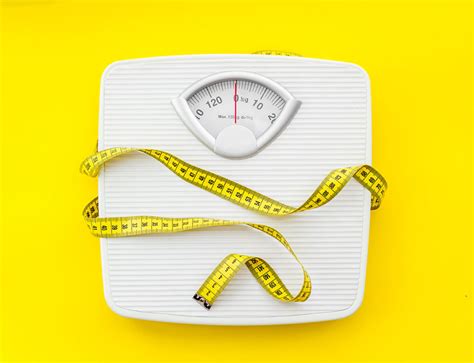Achieving and maintaining a healthy weight is a challenge many women face, especially as they age. While quick-fix solutions may promise fast results, a sustainable approach to weight loss is key for long-term success. In this article, we’ll explore expert-backed tips that focus on a balanced lifestyle, from eating nutritious foods to staying active and managing stress. These practical strategies will help you not only shed unwanted pounds but also improve your overall well-being. Whether you’re just starting your weight loss journey or looking to enhance your current efforts, these tips are designed to guide you toward a healthier, more vibrant life.
Join ujocis.net for an in-depth exploration of this topic.
1. Balanced Diet
A balanced diet is the cornerstone of any successful weight loss plan. It’s important to focus on nutrient-dense foods that provide essential vitamins and minerals while keeping calories in check. Prioritize a variety of fruits, vegetables, lean proteins, whole grains, and healthy fats to fuel your body with what it needs. Protein plays a crucial role in weight loss by keeping you full longer and supporting muscle maintenance, while fiber-rich foods like vegetables and whole grains aid in digestion and help control appetite.
Avoid processed foods high in sugars and unhealthy fats, as they can lead to weight gain and other health issues. Instead, opt for fresh, whole foods that nourish your body. Portion control is also key—eating the right amounts can prevent overeating and keep your metabolism functioning efficiently. Remember, a balanced diet isn’t about restriction but about making mindful choices that support long-term health and weight loss. By focusing on balance, you’ll set a solid foundation for sustainable success.

2. Regular Exercise
Regular exercise is a critical component of any weight loss plan, especially for women looking to maintain a healthy lifestyle. Incorporating both cardio and strength training into your routine can help burn calories, build muscle, and improve metabolism. Cardiovascular exercises like walking, cycling, or swimming are effective for burning fat, while strength training, such as lifting weights or doing bodyweight exercises, increases muscle mass and enhances your body’s ability to burn calories even at rest.
Aim for at least 30 minutes of moderate physical activity most days of the week, but remember to start at your own pace. Consistency is more important than intensity, and finding activities you enjoy will make it easier to stick with them long-term. Combining exercise with a balanced diet not only helps with weight loss but also improves overall health by reducing the risk of chronic diseases. Regular movement boosts mood, increases energy levels, and promotes better sleep, all essential for achieving lasting results in your weight loss journey.

3. Healthy Eating Habits
Developing healthy eating habits is essential for sustained weight loss and overall wellness. It’s not just about what you eat, but how you eat that can make a significant difference. One key habit is practicing mindful eating, which involves paying full attention to your food, savoring each bite, and recognizing your body’s hunger and fullness cues. This can prevent overeating and help you make healthier choices.
Another important habit is eating smaller, more frequent meals throughout the day. This can stabilize blood sugar levels and prevent energy crashes, which often lead to unhealthy snacking. Including plenty of fiber in your meals, such as vegetables, fruits, and whole grains, helps you feel full and satisfied for longer, reducing the temptation to overeat.
It’s also crucial to plan your meals in advance, which reduces the likelihood of turning to unhealthy convenience foods. Preparing your own meals gives you control over the ingredients and portion sizes, making it easier to stick to your weight loss goals.
Avoid eating late at night, as this can disrupt digestion and lead to weight gain. By incorporating these healthy eating habits into your daily routine, you’ll create a more mindful, balanced approach to food that supports your weight loss journey and promotes long-term health.

4. Hydration
Staying properly hydrated is often overlooked but plays a crucial role in weight loss and overall health. Drinking enough water not only helps control your appetite but also supports your body’s metabolism, digestion, and the elimination of toxins. Often, feelings of hunger are actually signals of dehydration, so drinking water regularly throughout the day can prevent unnecessary snacking and keep you feeling full.
A general guideline is to aim for at least 8 glasses (about 2 liters) of water per day, but individual needs may vary based on activity levels, climate, and personal health. Drinking water before meals can also aid in portion control by helping you feel fuller faster, reducing the chance of overeating.
Additionally, water is essential for breaking down fat and carbohydrates, helping your body use stored energy more efficiently. It also keeps your skin healthy and supports muscle recovery, especially when exercising. If plain water feels monotonous, you can add slices of lemon, cucumber, or berries for a refreshing twist, or opt for herbal teas.
It’s important to avoid sugary drinks, sodas, and excessive caffeine, as they can contribute to weight gain and dehydration. By making hydration a priority in your daily routine, you’ll not only support your weight loss goals but also enhance your overall well-being and energy levels.
5. Sleep and Recovery
Getting enough sleep and allowing your body time to recover are key factors in a successful weight loss journey. Sleep affects hunger hormones like ghrelin and leptin, which regulate your appetite. When you’re sleep-deprived, your body produces more ghrelin, increasing hunger, and less leptin, which signals fullness, leading to overeating and weight gain. Aiming for 7 to 9 hours of quality sleep each night can help balance these hormones and support your weight loss efforts.
In addition to proper sleep, recovery from physical activity is essential. Over-exercising without allowing your muscles time to rest can lead to fatigue, injury, and burnout. Incorporating rest days into your workout routine is crucial for muscle repair and growth, which helps boost metabolism and burn fat more effectively.
Sleep also plays a role in managing stress, which can directly impact weight loss. Poor sleep increases cortisol levels, a stress hormone linked to increased fat storage, especially in the abdominal area. Prioritizing rest, sleep, and relaxation helps reduce cortisol levels and creates a more balanced environment for healthy weight loss. By ensuring your body has time to recover and recharge, you’ll be better equipped to stay consistent and motivated on your journey.
6. Stress Management
Managing stress is an often overlooked but vital aspect of weight loss. Chronic stress triggers the release of cortisol, a hormone that can increase appetite and encourage fat storage, particularly around the abdomen. High cortisol levels also make it harder for the body to break down fat and can lead to emotional eating, where food is used as a way to cope with stress or anxiety.
To combat this, incorporating stress-reduction techniques into your daily routine can help manage both your mental health and weight loss efforts. Practices like meditation, yoga, deep breathing exercises, and mindfulness can significantly reduce stress levels, helping to regulate cortisol production and prevent weight gain.
Physical activity is another great way to manage stress. Not only does it help burn calories, but exercise also releases endorphins, the body’s natural mood elevators, which can improve your overall sense of well-being and resilience to stress.
By learning to manage stress effectively, you create a healthier environment for your body to lose weight. Addressing stress also helps improve sleep, boost energy levels, and reduce emotional eating, all of which contribute to long-term success in achieving and maintaining a healthy lifestyle.
7. Goal Setting and Tracking
Setting clear goals and tracking your progress are essential for achieving successful weight loss. Start by defining specific, measurable, achievable, relevant, and time-bound (SMART) goals. This approach helps you create a realistic plan and stay motivated. For instance, instead of aiming to “lose weight,” set a goal to “lose 1-2 pounds per week for the next three months.”
Regularly tracking your progress is crucial for staying on course. Use tools like food diaries, fitness apps, or wearable devices to monitor your calorie intake, exercise routines, and weight changes. Reviewing your progress allows you to make necessary adjustments to your plan and recognize your achievements, which can boost motivation.
Celebrate milestones along the way, no matter how small, to maintain enthusiasm and commitment. By setting structured goals and keeping track of your progress, you can stay focused, measure success, and adapt your strategies to ensure continued success in your weight loss journey.
8. Support Systems
Having a strong support system can significantly enhance your weight loss journey. Surround yourself with people who encourage and motivate you, whether it’s friends, family, or support groups. Sharing your goals and progress with others can provide accountability and create a network of encouragement during challenging times.
Joining a weight loss group or fitness class can offer both social support and practical advice. These communities provide a sense of camaraderie and shared experience, which can help you stay committed and inspired. Additionally, consider seeking support from a professional, such as a nutritionist or personal trainer, who can provide personalized guidance and strategies tailored to your needs.
Engaging with others who share similar goals not only provides emotional support but also creates opportunities for learning and exchanging tips. Building and maintaining a robust support network ensures you have the encouragement and resources needed to achieve and sustain your weight loss goals.
9. Professional Guidance
Seeking professional guidance can greatly enhance your weight loss efforts and overall health. A registered dietitian or nutritionist can provide personalized meal plans and nutritional advice tailored to your specific needs, helping you make informed food choices and establish healthy eating habits. They can also offer strategies for managing portion sizes and overcoming dietary challenges.
Similarly, working with a certified personal trainer can help you design a workout plan that aligns with your fitness goals and current fitness level. Trainers can ensure you perform exercises correctly and safely, maximizing the effectiveness of your workouts and reducing the risk of injury.
Consulting with healthcare professionals, such as your physician, is also important to address any underlying health issues that may affect your weight loss. By incorporating expert advice into your weight loss plan, you gain valuable insights and support, which can significantly improve your chances of achieving and maintaining a healthier lifestyle.
Achieving a healthier lifestyle involves a balanced approach that includes a nutritious diet, regular exercise, effective stress management, and adequate sleep. By setting clear goals, tracking progress, seeking support, and consulting professionals, you can make lasting changes and achieve your weight loss goals. Embrace these strategies for a more vibrant, healthier you.
ujocis.net

